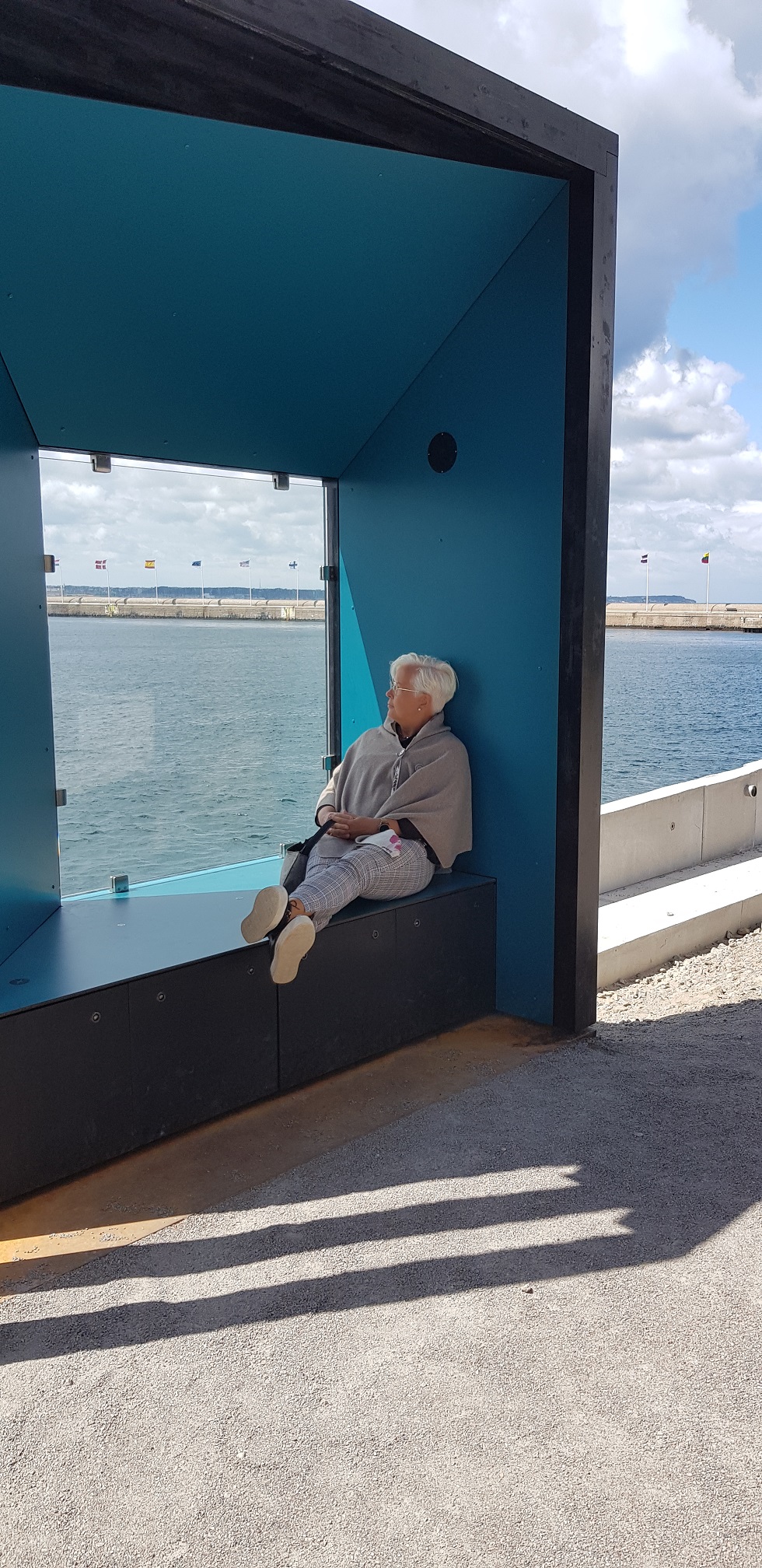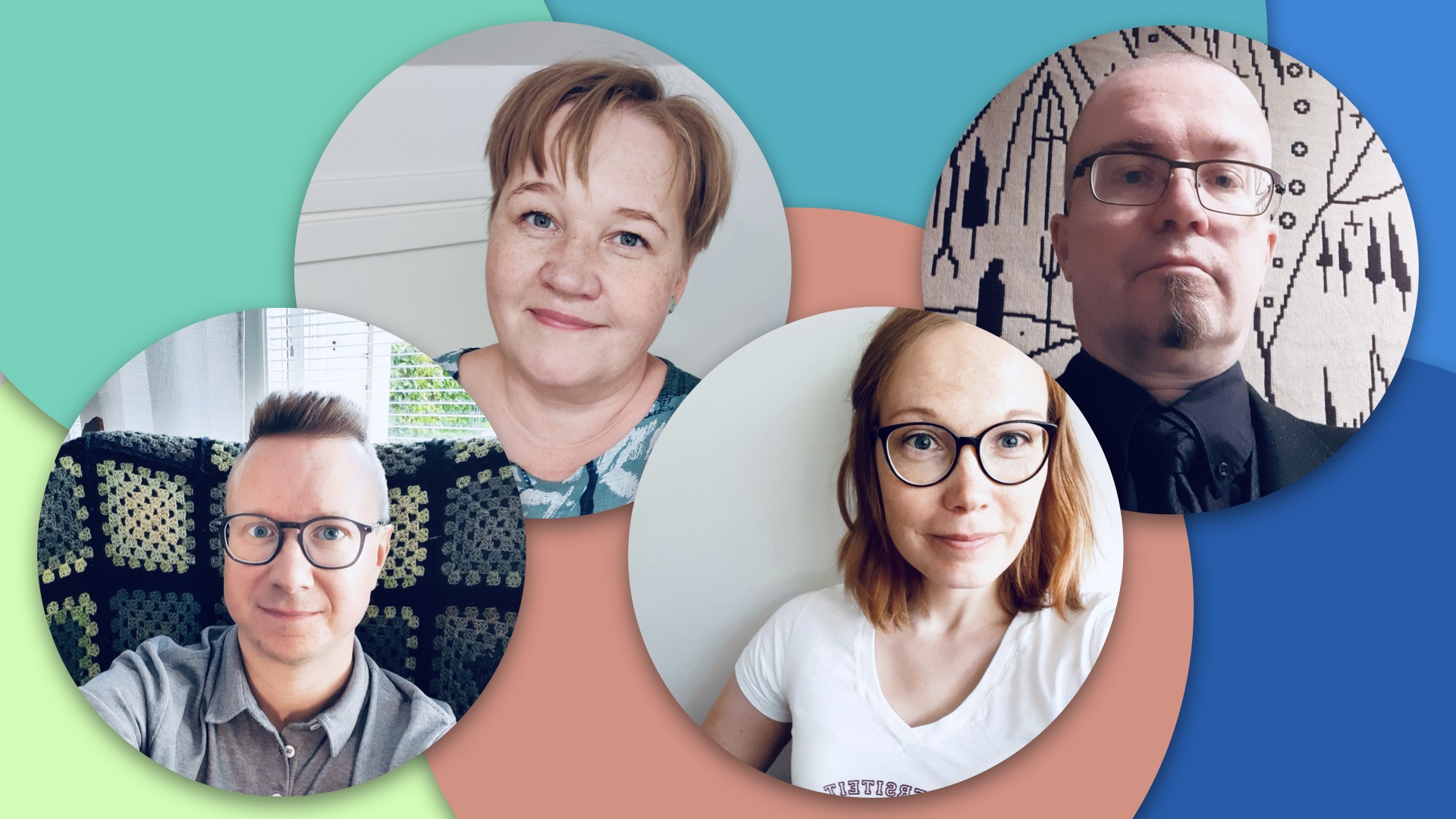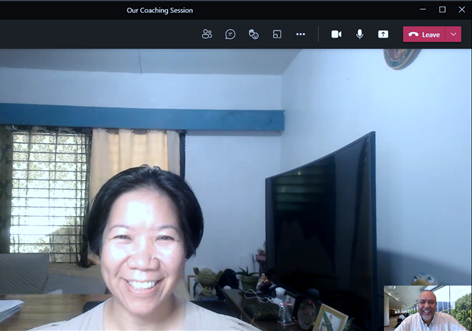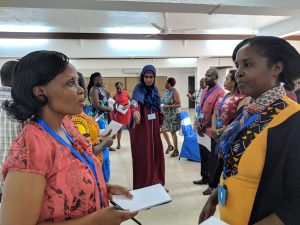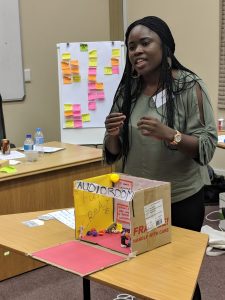by Mantra Roy
As an academic librarian in a public Higher Education Institute in the most diverse metropolitan city in the United States, San José in California, a major city in Silicon Valley in the greater Bay Area, I am very familiar with conversations about developing programs and services for students whose native language may not be English or who may speak multiple languages. San José is also home to several diasporic communities and in recent times, large percentages of Asian population have moved into the larger Bay Area, primarily because of the technology industry.
Of the Asian population, those from India have accounted for a major percentage. KQED reported in 2016, on the basis of AAPI Data (publisher of demographic data and policy research on Asian Americans and Pacific Islanders), that 350,000 Indians have moved to California over the last fifteen years. Mercury News reported that same year in an updated report about how affluent cities such as Cupertino, Palo Alto, Fremont, and Milpitas, have been experiencing more diversification in the Asian population owing to the rise in the number of Indians moving into them. In the growing Indian community, there are sub-groups based on languages as well as the states of origin in India. For example, there are Bengalis from the eastern state of West Bengal, there are Tamilians from the state of Tamil Nadu in southern India, there are Marathis from the western state of Maharashtra, and so on and so forth. Many of them can be Hindi speaking (typically spoken in the northern states of India) but coming from southern states like Telangana or Telugu speaking (the language of a southern state) but they have grown up in New Delhi, the capital of the country and located in North India.
Most of these communities have one or more cultural organizations which become community platforms for cultivating the arts such as music, cinema, dances, and religious or community festivals of each state or region. People from corresponding regions or states typically attend these events in order to stay connected with their native cultures and to pass it on to their children who, in many cases, are US citizens and experience their parents’ country during annual trips to India or through these cultural associations. These community associations also encourage the cultivation of the many languages of India, 22 of which are recognized by the Constitution of India, along with thousands of dialects. Many of these sub-groups conduct language classes as well.
All the languages of India have long literary traditions. Readers in these languages often purchase books on their annual trips to India or find niche bookstores in the USA where they find the latest authors writing in their languages. Many public libraries across the country respond to community needs by hosting small collections of books in Indian languages. Recently, in the Queens Public Library in New York, a Bangla Corner was inaugurated in response to the need for books in the Bengali language.
The Bengali language, often known as Bangla, is the language of what was the Bengal province in eastern pre-independent India. Today, there are 228 million first language speakers and 37 million second language speakers of Bengali. It is the 7th most widely used language over the world and the 5th most widely spoken native language.
The capital of the province, Calcutta, today known as Kolkata, was the capital of British India until 1911. When India became independent from British rule in 1947, the eastern part of the province became part of East Pakistan and later in 1971 became what is today the nation of Bangladesh. So, the Bengali language is shared between the country of Bangladesh and West Bengal, an eastern state of India. The language, literature, music, and food continue to be shared, cultivated, and cherished across the international border even today.
The role of Bengali literature in the Bangla speaking community is central to its identity. In the diaspora, reading and access to Bengali literature remains a matter of avid interest. It will be of interest to know that the first Asian to win the Nobel Prize in Literature in 1913 was Rabindranath Tagore who wrote in Bengali.
The Bay Area in California is home to thousands of Bengalis (the name of the community and language is the same) and several cultural organizations, founded, run, and attended by Bengalis from both India and Bangladesh, host events and festivals throughout the year. They celebrate Bengali music, literature, cinema, and food. There are several interest groups in the community where people meet to read poetry together or stage plays or record Bengali stories for online audiobooks.
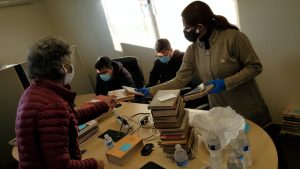
Some volunteers sort books into genres while others work on the library management system in January 2022.
However, the Bay Area has not had a library where Bengali books and magazines would be available for borrowing. February 26, 2022 changed this forever. The Dishari Public Library held its hybrid inauguration ceremony as the very first Bengali library of the Bay Area. ‘Dishari’ means ‘direction’ in many Indian languages. The idea originated in the Bangla language classes taught by The Dishari Foundation since 2014. Reading literary works in a language is the best way to cultivate the language. When the first round of conversations in the community met with applause, when a fundraising campaign in November 2021 was successful, when an office space was offered for free to host the library collection, and when a team of volunteers, including me, joined hands, we were ready to open the library doors.
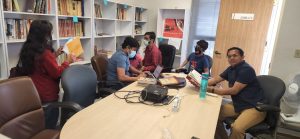
Cataloging by volunteers as the group discusses the genre classifications and transliterated spellings of books and authors in March 2022.
Some team members wrote the collection policy. Others built the Koha-based library management system, developed barcodes, and cataloged the books. Other team members procured the books: some met with community members and collected book donations; some went to Kolkata in India, purchased books and collected book donations from friends and families of Bay Area residents and had them shipped to the Bay Area. Others regularly attend cultural events in the area to promote the library collection. We have more than 500 books, including some rare author-signed copies. Many attendees at the inauguration event were from outside California and were curious about shipping books to out-of-state patrons. Some writers from Bangladesh have visited the library and expressed interest in supporting us. Many parents have brought their children to borrow children’s books.
But there are challenges. While we offer free membership and impose no fines for late returns, we have finite finances to run and expand the library. Currently, fundraising is our only source. Receiving book donations is not a problem but volunteer time to catalog them can become unsustainable. Transliterating Bengali titles for the catalog and determining several alternate spellings to facilitate discovery is time intensive and heavily dependent on volunteer availability. Increasing footfall in the library is a challenge as well because the library is open only on Saturdays when the volunteer team can be present in the library space. They have day jobs that keep them busy through the week.
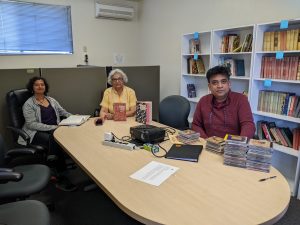
One of the founding members (right) with community members who donated rare music and audio collections in April 2022.
The team wants to create programs and services that will engage our community members. Public libraries in the USA have served mainstream patron communities by building collections in English but have responded to non-English language speaking patrons’ needs over time and on the basis of study and analysis. The Dishari library’s niche patron base tied to only one language poses an interesting challenge from the opposite end. Programs and services that will appeal uniquely to the Bengali community need to be built. The team has reached out to literary-minded interest groups in the area to collaborate with them and make the library a thriving platform for exchange of ideas and intellectual enrichment.
The team wants to collaborate with other language groups from India and expand beyond Bengali-language collections. Outreach to other cultural groups and seeking alliances to make the Dishari Public Library a pan-Indian resource for the diaspora is a milestone the team wants to achieve in the near future.
This community library is one of its kind and hopes to meet the reading needs of a diasporic community. While challenges are many, the volunteers are dedicated to make this library a success. As a trained librarian, the exercise of determining subject classifications for literary genres in a non-Roman language as well as creating ideas for programs and services for a diasporic community have been a great learning experience for me. We hope the Dishari Library is embraced by the community and it begins to flourish with their patronage and that there are more libraries that serve the unique literary needs of diasporic communities.
Mantra Roy, Ph.D, MLIS
Collection Strategy Librarian
Dr. Martin Luther King, Jr. Library
San Jose State University
San Jose, CA 95192-0028
Board of Directors, FORCE11
International Advisory Committee, SALIS (India)
